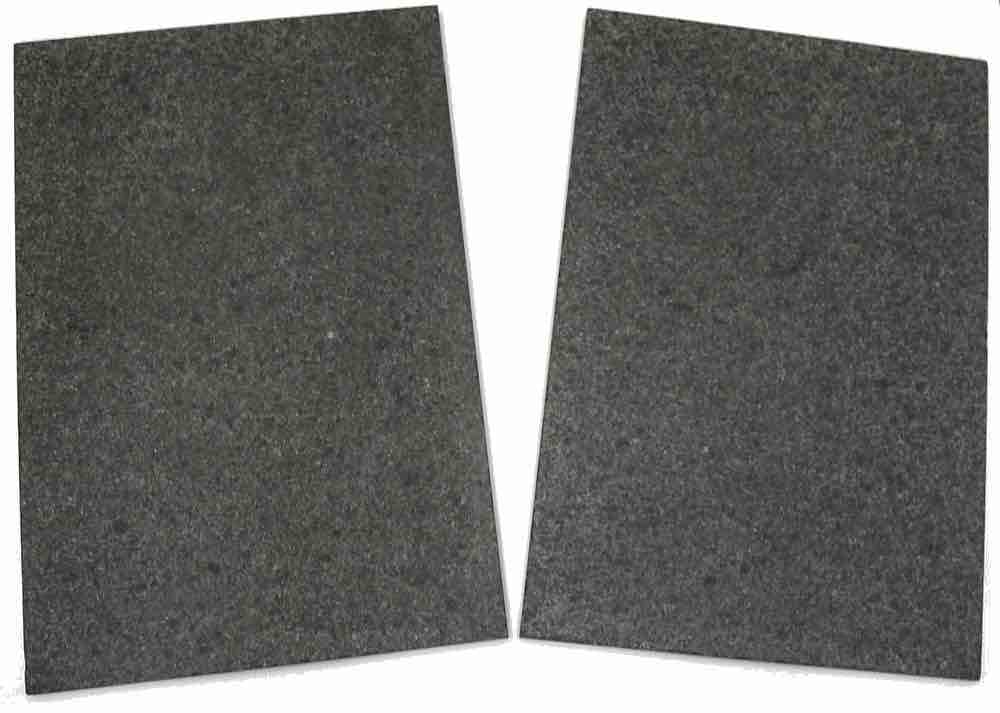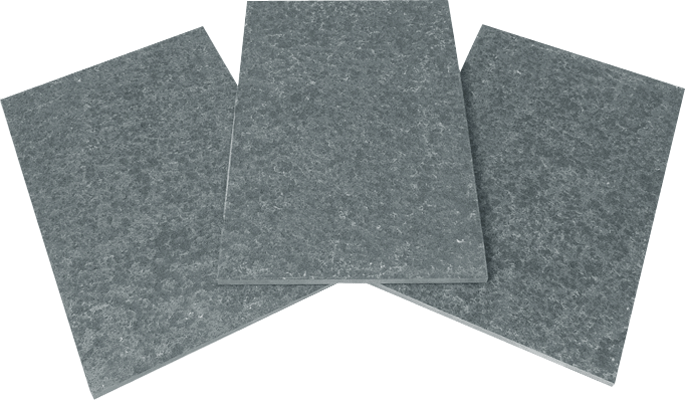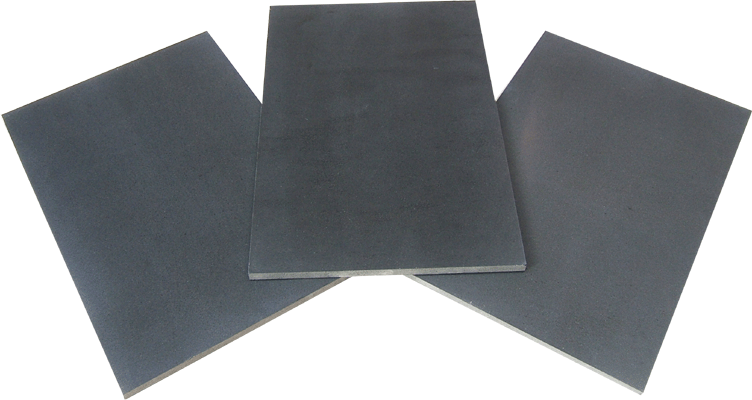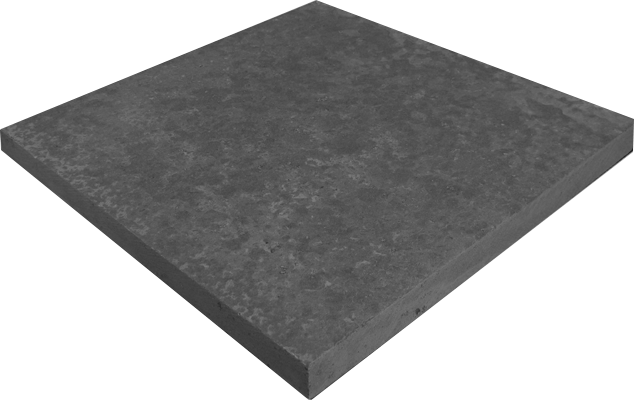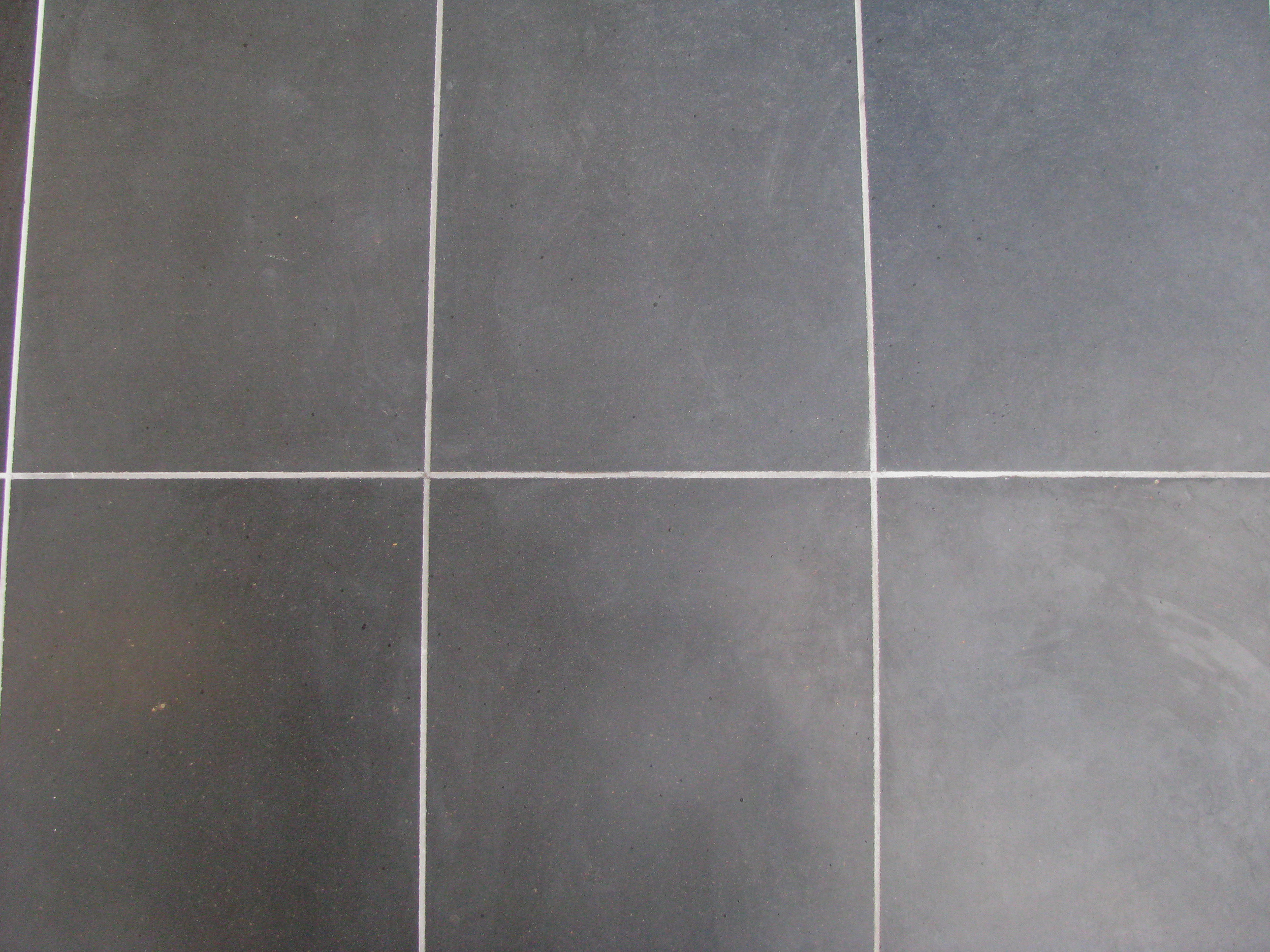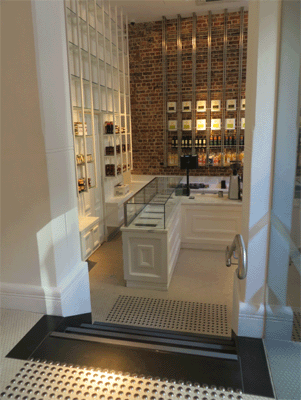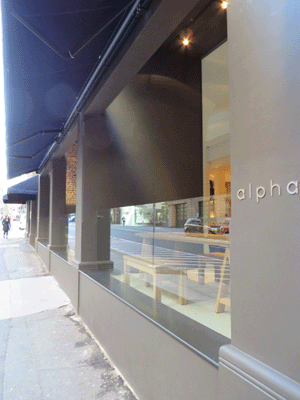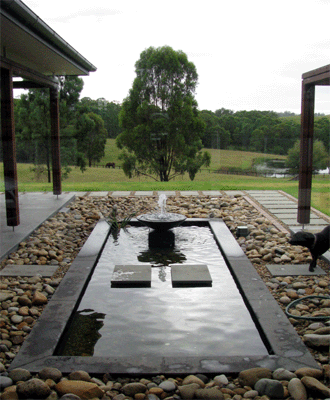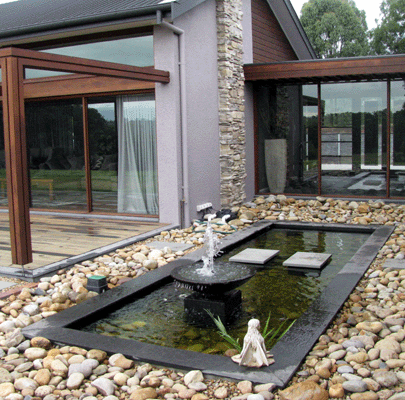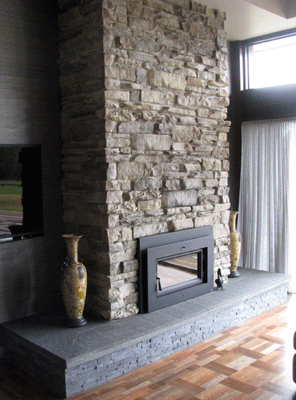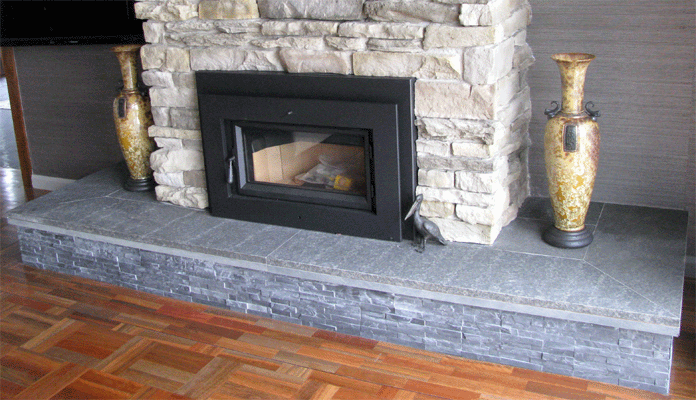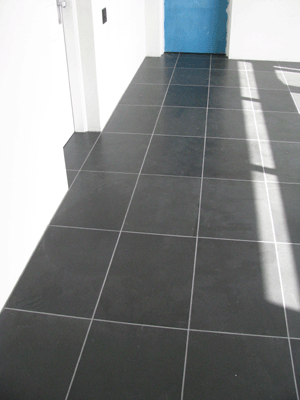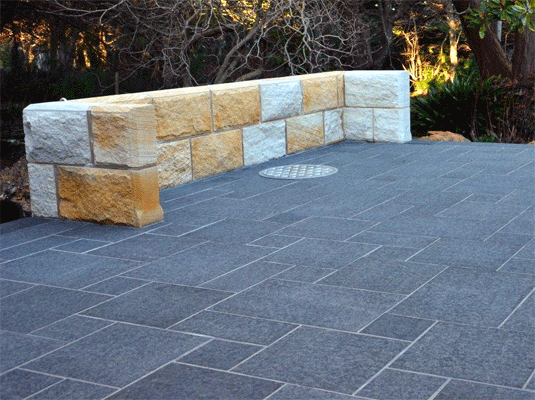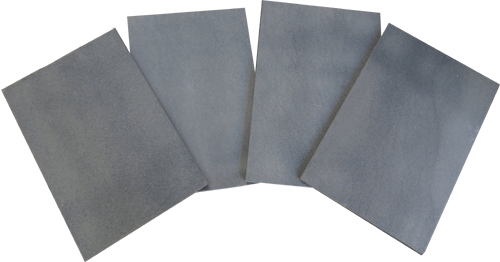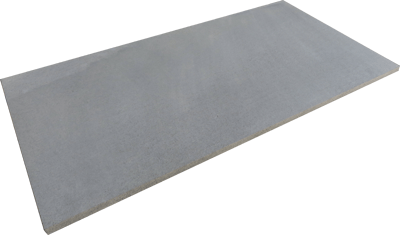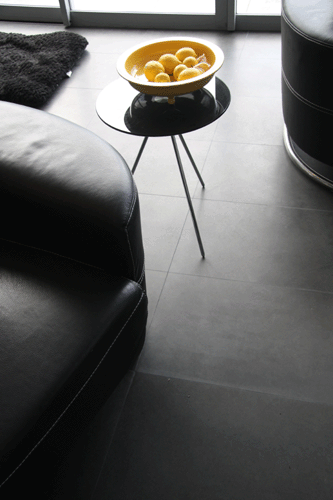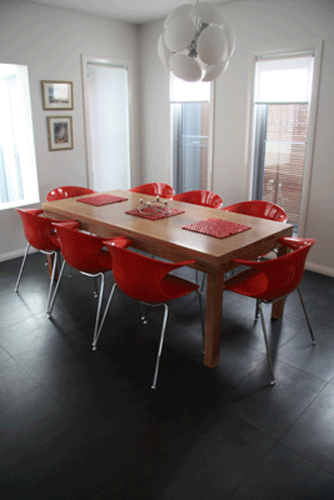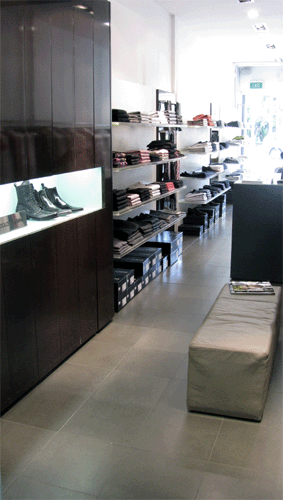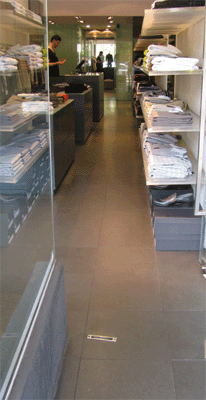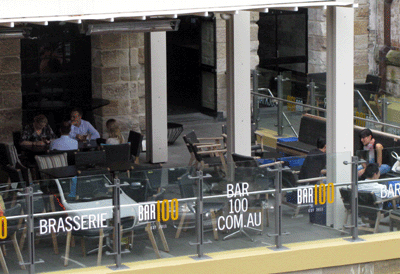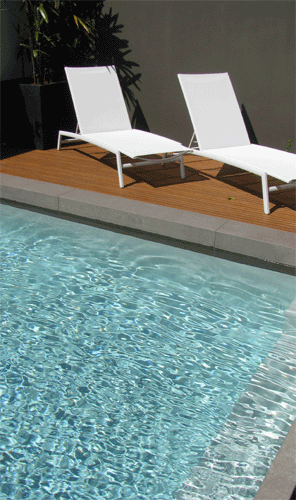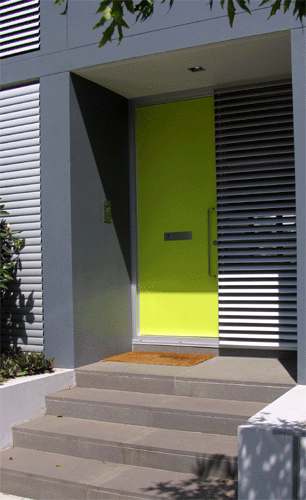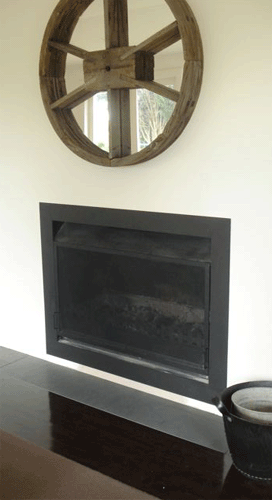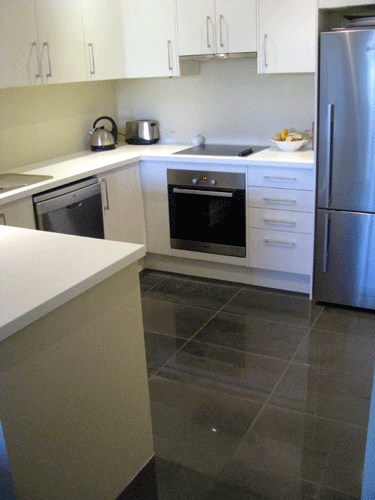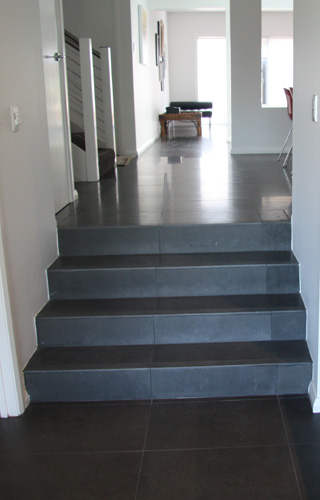BLUESTONE
MALI, BELLAMBI + ZIMBABWE BLUESTONE FLOORING TILES AND PAVERS
Bluestone's toughness gives it excellent wear and tear resistance. It is often used for structural work because of its high compressive strength and durability. It's toughness is legendary. It is a dense and incredibly durable building and landscaping material that has an unmistakable decorative quality and beauty. It is also highly versatile. It's dark colour and range of surface treatments (sawn, honed, sandblasted etc) provide options for different uses.
There are three varieties of Bluestone available at Bellstone: Bellambi Bluestone, Mali Bluestone and Zimbabwe.
Available in flamed surface finish
size: 300x600x15mm
400x600x15mm
suitable for both indoor and outdoor use
An extremely versatile & dense charcoal grey coloured basalt
Available in two surface finishes: flamed and honed
4 product options: honed tiles (15mm), flamed tiles (15 & 20mm), flamed pavers (30mm) & flamed treads
Suitable for both indoor and outdoor use
An extremely versatile top of the line, grey/black coloured basalt
Available in sawn, honed and sandblasted & brushed surface finishes
All tiles - 600x400x15mm & 800x400x15mm
Ideal for indoor use on both floors and walls
An extremely versatile & dense mid-grey coloured stone with no visible holes or "cat's paws"
BLUESTONE: WHAT IS IT?
The first thing you need to know about Mali & Bellambi bluestone is that they are not in fact bluestones! Geologically, they are both gabbro which is in fact a type of basalt that has very fine particles and few holes. In Australia, basalt is commonly referred to as bluestone because it can take on a bluish look like many of the old homes built in Victoria and South Australia. While bluestone might not appear in a dictionary of geology, it is a description of a very dense volcanic rock that most Australians understand. It is just a name that is given to a range of basalt derived stone most of which are black/blue in colour. There are many different types of basalt so it can get very technical - most people don't want to go there and are happy with bluestone as a generic term.
BLUESTONE FINISHES AVAILABLE
Sawn - this is the least intrusive surface treatment requiring very little processing so it is a very cost effective surface for outdoor paving. Sawn bluestone is popular for outdoor applications as it has higher slip resistance than honed bluestone but still retains a flat even surface. Flamed bluestone by comparison is quite an uneven surface.
Honed – is a dark grey black surface colour with a velvet appearance suited to indoor wall and flooring - a stunning product.
Flamed – a surface finish that has a scalloped character that is ideal for outside use where traction and safety are important.
Sandblasted – a surface finish that has a fine roughened character that is ideal for outside use where traction and safety are important.
Brushed – a surface finish that involves sandblasting and then brushing resulting in an elegant, soft leather-like finish.
Natural - in its natural split form, Bluestone is available as cobbles for use on driveways and paths. They are very strong and the split face finish creates good traction. The dark grey/black colour is very practical as it shows no dirt or rubber tyre marks.
VOLCANIC STONE - ENVIRONMENTALLY SOUND
Bluestone is as it comes from the earth - completely natural. Actually, this particular bluestone (or basalt) comes from volcanoes! Other than cutting the sides and grinding the base of each tile and paver, there is a very low input manufacturing process which makes it more affordable. The stone is untreated with any form of chemical and is so hard that it wears out diamond tipped cutting wheels quickly. It is one of the hardest stones which means it can handle high traffic areas with ease.
CARE INSTRUCTIONS: STONE CLEANING
Stains from culprits such as wine and coffee have minimal impact because of the stone's low water absorption properties. Bluestone floors get dirty but you don't notice it e.g. the grey colour disguises dirt beautifully. This make cleaning and maintenance less stressful.
CARE INSTRUCTIONS: STONE SEALING
Bluestone does not always need sealers though sometimes they are applied (e.g. food areas) just to make cleaning a little easier. If bluestone is in a high risk area, it pays to seal. High traffic, food preparation areas, under trees, dogs etc might all mean that 2 coasts of Sealer's Choice Gold would be a good option to prevent staining. We recommend that our bluestone be pre-sealed prior to installing or laying to prevent grout residues penetrating the stone pores.Keep in mind that all bluestone (basalt) contains iron compounds that can react with chemicals (pool chlorine, salt, food & beverage acids) to cause light rust marks. Sealing helps to protect the stone. Traditionally chlorinated pools are not as threatening as salt water pools but sealing is still recommended as a cheap way of preserving stone quality.



